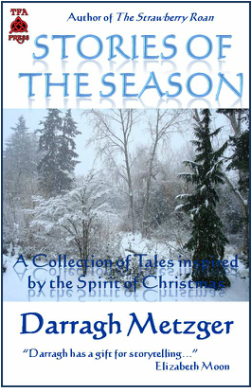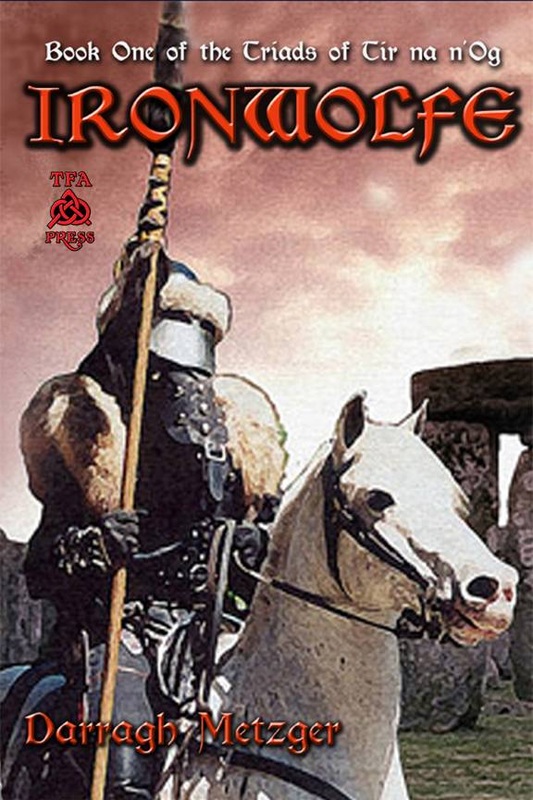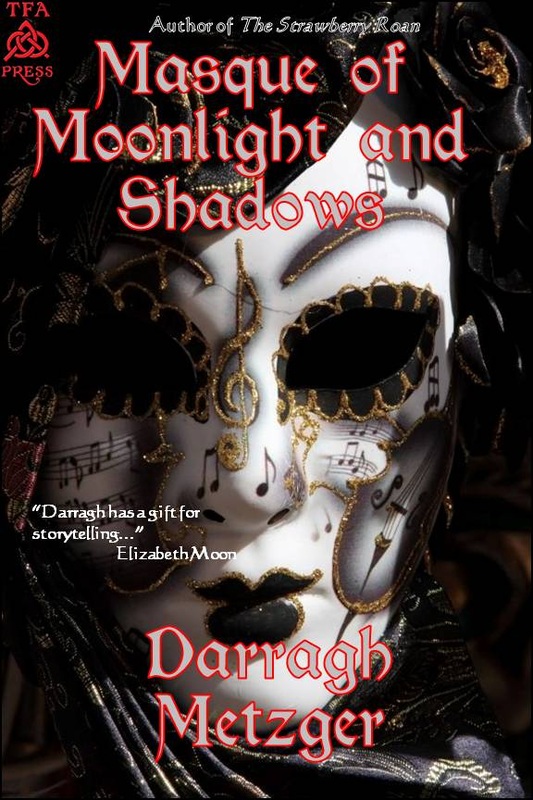Much as I personally prefer good old fashioned print books made out of real paper and so forth, I've had a few of my books and several short stories available on Smashwords (www.smashwords.com) and in Kindle format at Amazon for some time now. For those who have never used it, Smashwords is a retailer that converts your books to almost every conceivable e-book format so people who didn't jump on the Kindle bandwagon can download and read your stuff.
Sales have been modest; since I suck at marketing and don't do a lot of it, I really didn't expect anything else. But after receiving several nagging notes from readers asking when my entire Triads of Tir na n'Og series was going to be available for Nook (I'd only put the first book, Ironwolfe, up), I finally decided I needed to finish uploading the rest of the series. It seemed like a good opportunity to do another long-overdue marketing push anyway.
Then friends of mine (Michael "Tinker" Pearce and his lovely and gregarious wife, Linda) who are also authors told me about another publishing platform called Draft2Digital. They found it much more user-friendly for authors and swore their sales had risen almost immediately after they'd gone ahead and uploaded a couple of their books. (If you want a really fun read, try their Dwarven Rifleman series: michaeltinkerpearce.com). So I decided to give it a try as well.
After going through all the the Smashwords and Draft2Digital pages, I couldn't find anything that actually said I had to use either one or the other but not both. So I went ahead, made a few minor changes between the editions, and uploaded the series onto both. Draft2Digital does not run a store; it sells to other e-book retailers. Smashwords sells books directly to readers, but it also distributes to most of the same retailers as Draft2Digital.
Sure enough, Draft2Digital is much, much easier to use for the authors. Sales reports are also obviously displayed and pretty much readable by anyone with more than a third-grade education. It's newer and not as well-known as Smashwords, but hopefully my books will fare well through them. I plan to wait and see how things go, then unpublish from whichever platform is doing the fewest sales.
Although Smashwords has been pretty good to me, I'm rather hoping it loses this little competition. This is based solely on the differences in the way the two platforms offer their sales reports.
I am a reasonably well-educated person, but I confess I've had ongoing issues with the comprehensibility of the reports I can download--sometimes only with extreme difficulty–from Amazon and Smashwords. In the first place, computers and I are not natural allies. Yes, I've had to use them almost exclusively for work for the past 20 years or so, but it's never been a happy partnership. They hate me, and I remain uncomfortable with them. This is no joke; at my last job, my co-workers used to laugh at my seemingly magical ability to crash almost any program I worked in. My very touch could bring about the "blue screen of death" faster than anyone's. I'd like to think this has more to do with my personal electrical/magnetic output (we are all living batteries, after all), which also stops almost any watch I wear for any length of time, than with my intelligence or general competence. On the other hand, that may just be a comforting lie I tell myself. Dealing with computers for more than the most standard tasks puts a knot in my stomach. Nothing can make me feel as if my I.Q. begins with a decimal point faster.
Amazon and Smashwords were designed by people to whom computers are extensions of their own psyches. I'm sure to them and others like them, which seems to be most of the rest of the world (and certainly almost everyone younger than I am), the reports are clear, efficient, and easy to use. Not so much when I go to look at them or download the specific time periods I want.
Then there are the numbers themselves. While I understand about lending libraries and free downloads and all those special circumstances that change the prices various consumers or outlets pay for each book, how on earth do I get a royalty of $2.37 on one sale and $.24 on another of the same book? And no royalties at all on what the same charts insist is another dozen sales? Deciphering all those often highly misleading headings and numbers is sometimes a horrendous chore that gives me a headache and makes me too often skip what I should dutifully work out to the last detail. Which leaves me to do the whole year in one fell swoop at tax time, making it all an even more horrendous chore.
All part of the price of doing business. But this particular re-start is going to have to signal a change in the way I do it. If I'm going to continue to run this business, I have to start treating it seriously as a business. And that means tackling my arch-nemesis.
*sigh*. Okay, Metzger, welcome to the computer age. Now sit up and quit gibbering.
Sales have been modest; since I suck at marketing and don't do a lot of it, I really didn't expect anything else. But after receiving several nagging notes from readers asking when my entire Triads of Tir na n'Og series was going to be available for Nook (I'd only put the first book, Ironwolfe, up), I finally decided I needed to finish uploading the rest of the series. It seemed like a good opportunity to do another long-overdue marketing push anyway.
Then friends of mine (Michael "Tinker" Pearce and his lovely and gregarious wife, Linda) who are also authors told me about another publishing platform called Draft2Digital. They found it much more user-friendly for authors and swore their sales had risen almost immediately after they'd gone ahead and uploaded a couple of their books. (If you want a really fun read, try their Dwarven Rifleman series: michaeltinkerpearce.com). So I decided to give it a try as well.
After going through all the the Smashwords and Draft2Digital pages, I couldn't find anything that actually said I had to use either one or the other but not both. So I went ahead, made a few minor changes between the editions, and uploaded the series onto both. Draft2Digital does not run a store; it sells to other e-book retailers. Smashwords sells books directly to readers, but it also distributes to most of the same retailers as Draft2Digital.
Sure enough, Draft2Digital is much, much easier to use for the authors. Sales reports are also obviously displayed and pretty much readable by anyone with more than a third-grade education. It's newer and not as well-known as Smashwords, but hopefully my books will fare well through them. I plan to wait and see how things go, then unpublish from whichever platform is doing the fewest sales.
Although Smashwords has been pretty good to me, I'm rather hoping it loses this little competition. This is based solely on the differences in the way the two platforms offer their sales reports.
I am a reasonably well-educated person, but I confess I've had ongoing issues with the comprehensibility of the reports I can download--sometimes only with extreme difficulty–from Amazon and Smashwords. In the first place, computers and I are not natural allies. Yes, I've had to use them almost exclusively for work for the past 20 years or so, but it's never been a happy partnership. They hate me, and I remain uncomfortable with them. This is no joke; at my last job, my co-workers used to laugh at my seemingly magical ability to crash almost any program I worked in. My very touch could bring about the "blue screen of death" faster than anyone's. I'd like to think this has more to do with my personal electrical/magnetic output (we are all living batteries, after all), which also stops almost any watch I wear for any length of time, than with my intelligence or general competence. On the other hand, that may just be a comforting lie I tell myself. Dealing with computers for more than the most standard tasks puts a knot in my stomach. Nothing can make me feel as if my I.Q. begins with a decimal point faster.
Amazon and Smashwords were designed by people to whom computers are extensions of their own psyches. I'm sure to them and others like them, which seems to be most of the rest of the world (and certainly almost everyone younger than I am), the reports are clear, efficient, and easy to use. Not so much when I go to look at them or download the specific time periods I want.
Then there are the numbers themselves. While I understand about lending libraries and free downloads and all those special circumstances that change the prices various consumers or outlets pay for each book, how on earth do I get a royalty of $2.37 on one sale and $.24 on another of the same book? And no royalties at all on what the same charts insist is another dozen sales? Deciphering all those often highly misleading headings and numbers is sometimes a horrendous chore that gives me a headache and makes me too often skip what I should dutifully work out to the last detail. Which leaves me to do the whole year in one fell swoop at tax time, making it all an even more horrendous chore.
All part of the price of doing business. But this particular re-start is going to have to signal a change in the way I do it. If I'm going to continue to run this business, I have to start treating it seriously as a business. And that means tackling my arch-nemesis.
*sigh*. Okay, Metzger, welcome to the computer age. Now sit up and quit gibbering.
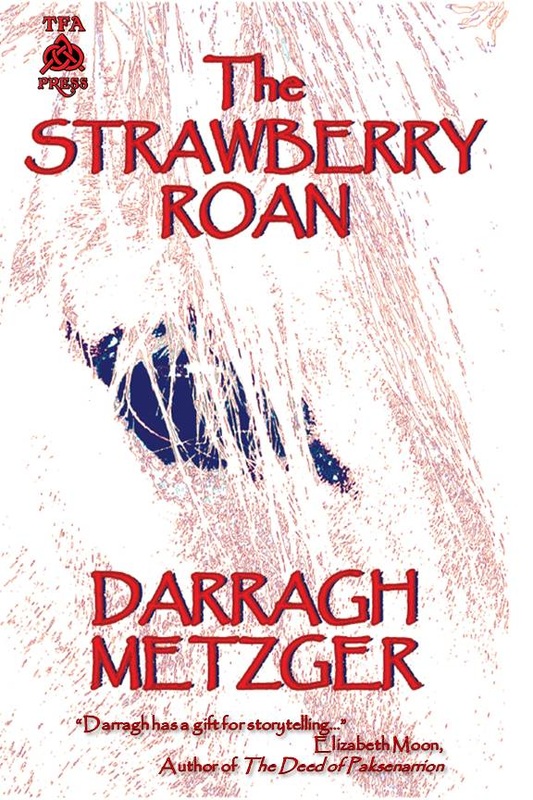
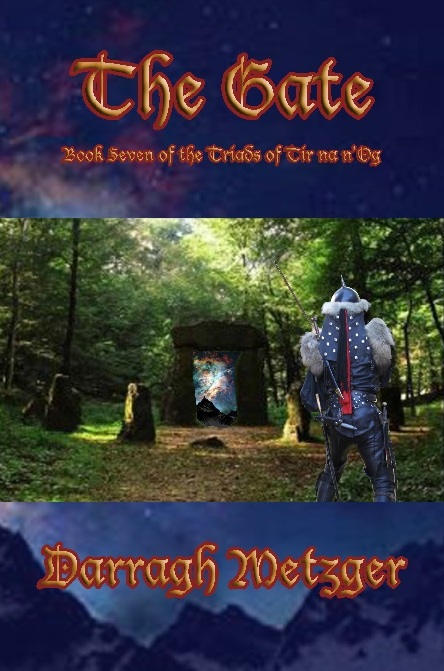
 RSS Feed
RSS Feed
